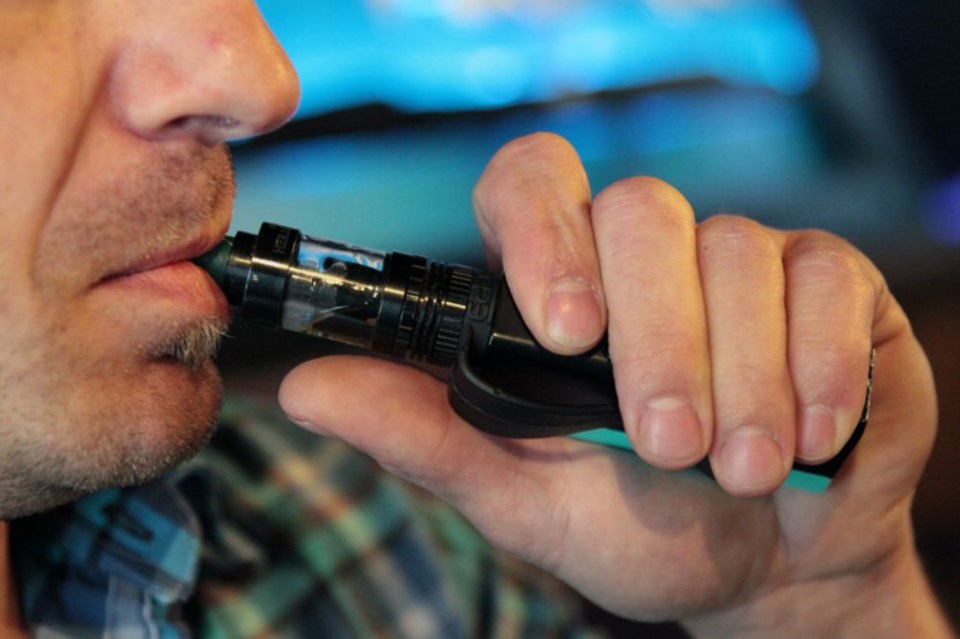THUNDER BAY -- Tammy Tremblay absolutely needs to quit smoking.
Tremblay underwent foot surgery but pins didn’t take, she said, because of the health effects of her tobacco use. Four years later, her tissues haven’t healed and her arthritis is getting worse.
She made her first visit to Superior Vapes on Monday, determined to quit smoking using e-cigarettes.
“I mentioned (e-cigarettes) to my doctor. He said if I do use this, I’ll be able to qualify for my foot surgery so again, it’s helping me for my future, for my pain and for me to keep on working,” she said.
“I’m quite excited to try it. I’m ready to quit smoking, man.”
As ready as Ontario is for its citizens to quit smoking, it doesn’t have the same faith in e-cigarettes.
The province’s Making Healthier Choices Act was made law in May. Bill 45 will align e-cigarettes regulations with those that govern tobacco sale and use. The law forbids using e-cigarettes in restaurants, bars, workplaces, parks and all enclosed public spaces.
Thunder Bay District Health Unit tobacco enforcement officer Klaus Larsen applauded the bill, adding he doesn’t think it goes far enough in regulating the new product’s use or sale. Not only is there no long-term health evidence to support e-cigarette use, he said, there’s also no conclusive evidence to show vaping helps tobacco users quit the habit.
 “There’s some evidence to suggest people become dual users,” Larsen said, contrasting e-cigarettes with successful trials among those who have quit smoking using nicotine patches or gum.
“There’s some evidence to suggest people become dual users,” Larsen said, contrasting e-cigarettes with successful trials among those who have quit smoking using nicotine patches or gum.
“In other words, they’re using the e-cigarette and they’re still smoking the regular cigarette. It may be a reduction in the amount they’re smoking tobacco products but then the other concern is, is it a gateway? A lot of them contain nicotine. It’s the nicotine that’s addictive.”
Larsen insisted more studies are needed on propylene glycol, for example, a commonly-used chemical that dries the user’s throat and assists with a nicotine hit, comparable to smoking a cigarette.
Although there is a certifying industry group called E-Liquid Testing Standards, Canada has no restrictions at all on the chemical contents of the liquid, commonly known as e-juice.
Larsen said that’s leading to homemade product of more dubious quality being brewed across Canada, including in Thunder Bay.
“There isn’t any black market because there aren’t any regulations around e-juice. How much nicotine is in there? Health Canada says it’s illegal to put nicotine in e-cigarettes, it’s illegal to advertise e-cigarettes as a cessation device but it’s something Health Canada either isn’t willing to enforce or doesn’t have the ability to enforce.”
Superior Vapes owner Frank Lesnick has never heard of anyone locally making e-juice but under the new law, he feels his business has has more to fear than underground competition.
Lesnick quit smoking after inhaling over a pack a day for 20 years and was so sold on the e-cigarette technology that he opened his own storefront in February. On Sunday, he organized a small demonstration of pro-vapers outside of Thunder Bay-Superior North MPP Michael Gravelle’s office.
 Lesnick argued the new law will limit display and promotion of e-cigarettes in the same way as tobacco sales are hidden in convenience stores. He hopes there’s still time to make changes in implementation before the law takes effect in January.
Lesnick argued the new law will limit display and promotion of e-cigarettes in the same way as tobacco sales are hidden in convenience stores. He hopes there’s still time to make changes in implementation before the law takes effect in January.
“Basically, that’s going to shut us down because we won’t be able to show people how to vape. We won’t be able to show or tell people what we have,” he said.
“If you go to any smoke shop in town, all their products are displayed. How come I can look at their cigars and their tobacco selection and their paraphernalia for doing their tobacco products and we have to have our products hidden behind closed doors? Why?”
